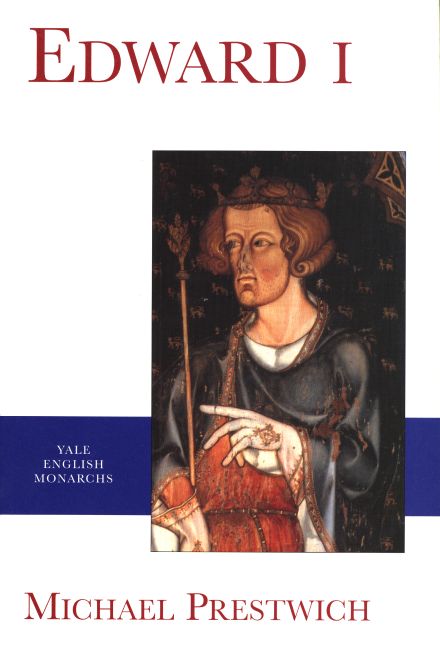Medieval History

Michael Prestwich, a highly respected medieval scholar, has weighed in on the debate about the value of historical biographies.
Prestwich, a Professor of History at Durham University, and author of a biography about Edward I, penned the article, "Medieval Biography", for the next issue of the Journal of Interdisciplinary History. It details his thoughts on the issues raised by biographical approaches, focusing in on his area of research, 13th and 14th century England.
Prestwich explains, "For me, history is about explaining, illuminating, and interpreting the past. To do so requires the collection of evidence, followed by a process of evaluating it, sorting it, and employing it to test different hypotheses. Some of the questions to ask arise from reading what other historians have written; others arise out of the evidence itself. Elements of the inquiry can also derive from personal preoccupations and interests. The results of these processes need to be written as clearly as possible, but, in the end, there are no final right answers."
Prestwich notes some of the arguments against the writing of bibliographies. He notes that many critics of biographies say "that history is about much more than the lives of individuals; it is about the study of political, social, economic, and intellectual movements that are much more than the sum of those involved in them."
He adds that many academics are not trained in writing the narrative style that is needed to make a good biography, and that many history departments actively discourage these kind of books.
"There are good reasons why medieval historians, in particular," Prestwich explains, "should not write biographies; they face greater difficulties than historians of most other periods because of the remote nature of the evidence, which limits the insights into character and motivation that historians of more recent periods can expect to provide."

But Prestwich also notes that biographies offer a refreshing alternative to some history, which can be dry and analytical, and written with little regard for its audience. He goes on to detail his approach to writing his book Edward I , which "was more a history of England in the time of Edward I than a pure biography."
, which "was more a history of England in the time of Edward I than a pure biography."
The article goes on to cover, not only his work, but other recent biographies written about English kings and other persons, showing where they have been valuable contributions to historians or where they have added just little to historical understanding of the topic. Prestwich also notes that biographies written for a popular audience can sometimes make conclusions unsupported by evidence, or put too much emphasis on irrelevant details (he cites the example that one author had to note that the floor of Edward II?s bathroom at Westminster had 2,250 tiles).
Prestwich concludes, that "much good medieval history has been written in recent years in biographical form, and genuine advances in understanding have been achieved when historians have adopted this approach." But he tempers that approval by noting that it has its limitations, and that while, "biography has its place, but history is much more than the sum of men and women?s lives."
Prestwich's article, "Medieval Biography" can be found in the Winter 2010 issue of the Journal of Interdisciplinary History (Volume 40, Number 3)
- Recent Discoveries For Anglo-saxon England
ELB writes: Important new research by ASNC Department members Prof. Simon Keynes and Dr Rosalind Love is highlighted in Cambridge University's Research Horizons newsletter this month. As Research Horizons puts it: Recent headlines might give the impression...
- Arabic Sources Show Extreme Weather Hit Medieval Baghdad
Medieval manuscripts written by Arabic scholars can provide valuable meteorological information to help modern scientists reconstruct the climate of the past, a new study has revealed. The research, published in Weather, analyses the writings of scholars,...
- Dirty, Smelly Barbarians
So, in a recent New Yorker (yes, I am a sterotype -- an academic who reads The New Yorker) there's a review of David Levering Lewis' God's Crucible: Islam and the Making of Europe, 570-1215 by Joan Acocella. Oh, where to begin? I just don't...
- Skepsi, Second Issue Cfp
Call for papers: Skepsi, Second Issue The editorial board of Skepsi is pleased to invite contributions for the second issue of the Interdisciplinary Online Journal of European Thought and Theory in Humanities and Social Sciences, based in the University...
- For Your Eyes Only: Lionheart By Sharon Kay Penman
Lionheart by Sharon Kay Penman What rating does one give a book that was not only not read to the end, but was only read to 60 pages? Only on special occasions do I actually give a rating to a book if I have not made it to around 100 pages - or in the...
Medieval History
Michael Prestwich discusses medieval biographies

Prestwich, a Professor of History at Durham University, and author of a biography about Edward I, penned the article, "Medieval Biography", for the next issue of the Journal of Interdisciplinary History. It details his thoughts on the issues raised by biographical approaches, focusing in on his area of research, 13th and 14th century England.
Prestwich explains, "For me, history is about explaining, illuminating, and interpreting the past. To do so requires the collection of evidence, followed by a process of evaluating it, sorting it, and employing it to test different hypotheses. Some of the questions to ask arise from reading what other historians have written; others arise out of the evidence itself. Elements of the inquiry can also derive from personal preoccupations and interests. The results of these processes need to be written as clearly as possible, but, in the end, there are no final right answers."
Prestwich notes some of the arguments against the writing of bibliographies. He notes that many critics of biographies say "that history is about much more than the lives of individuals; it is about the study of political, social, economic, and intellectual movements that are much more than the sum of those involved in them."
He adds that many academics are not trained in writing the narrative style that is needed to make a good biography, and that many history departments actively discourage these kind of books.
"There are good reasons why medieval historians, in particular," Prestwich explains, "should not write biographies; they face greater difficulties than historians of most other periods because of the remote nature of the evidence, which limits the insights into character and motivation that historians of more recent periods can expect to provide."

 , which "was more a history of England in the time of Edward I than a pure biography."
, which "was more a history of England in the time of Edward I than a pure biography."The article goes on to cover, not only his work, but other recent biographies written about English kings and other persons, showing where they have been valuable contributions to historians or where they have added just little to historical understanding of the topic. Prestwich also notes that biographies written for a popular audience can sometimes make conclusions unsupported by evidence, or put too much emphasis on irrelevant details (he cites the example that one author had to note that the floor of Edward II?s bathroom at Westminster had 2,250 tiles).
Prestwich concludes, that "much good medieval history has been written in recent years in biographical form, and genuine advances in understanding have been achieved when historians have adopted this approach." But he tempers that approval by noting that it has its limitations, and that while, "biography has its place, but history is much more than the sum of men and women?s lives."
Prestwich's article, "Medieval Biography" can be found in the Winter 2010 issue of the Journal of Interdisciplinary History (Volume 40, Number 3)
- Recent Discoveries For Anglo-saxon England
ELB writes: Important new research by ASNC Department members Prof. Simon Keynes and Dr Rosalind Love is highlighted in Cambridge University's Research Horizons newsletter this month. As Research Horizons puts it: Recent headlines might give the impression...
- Arabic Sources Show Extreme Weather Hit Medieval Baghdad
Medieval manuscripts written by Arabic scholars can provide valuable meteorological information to help modern scientists reconstruct the climate of the past, a new study has revealed. The research, published in Weather, analyses the writings of scholars,...
- Dirty, Smelly Barbarians
So, in a recent New Yorker (yes, I am a sterotype -- an academic who reads The New Yorker) there's a review of David Levering Lewis' God's Crucible: Islam and the Making of Europe, 570-1215 by Joan Acocella. Oh, where to begin? I just don't...
- Skepsi, Second Issue Cfp
Call for papers: Skepsi, Second Issue The editorial board of Skepsi is pleased to invite contributions for the second issue of the Interdisciplinary Online Journal of European Thought and Theory in Humanities and Social Sciences, based in the University...
- For Your Eyes Only: Lionheart By Sharon Kay Penman
Lionheart by Sharon Kay Penman What rating does one give a book that was not only not read to the end, but was only read to 60 pages? Only on special occasions do I actually give a rating to a book if I have not made it to around 100 pages - or in the...
